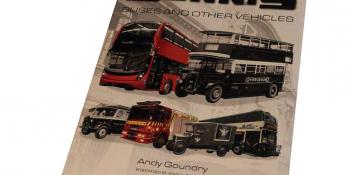Title: British Trolleybus Systems -Yorkshire
Author: Peter Waller
Publisher: Pen & Sword Transport
ISBN: 978-1-52677-060-8
Specification: 285mm x 225mm, 144pp, hardback
Price: £30
It is appropriate that this first of four volumes on the histories of all of the UK’s trolleybus systems should focus on Yorkshire, as that is where Britain’s 61-year association with trolleybuses began and ended, the country’s first generation of electric bus operation. One of its cities, Bradford, was the only place where trolleybus operation crept just into a seventh decade.
They may have endured for the longest period there (1911 to 1972), but there were ten other systems of varying size and longevity. The trolleybuses of the Teesside Railless Traction Board and its Teesside Municipal Transport successor served what then was part of Yorkshire from 1919 to 1971 and that small undertaking held the distinction of opening the last significant extension of any British system in 1968 after most of the country’s other ones had already closed.
By contrast, four other pioneering systems were short-lived. That in Leeds, opened on the same day as Bradford’s, closed in 1928 without progressing beyond two unconnec…




